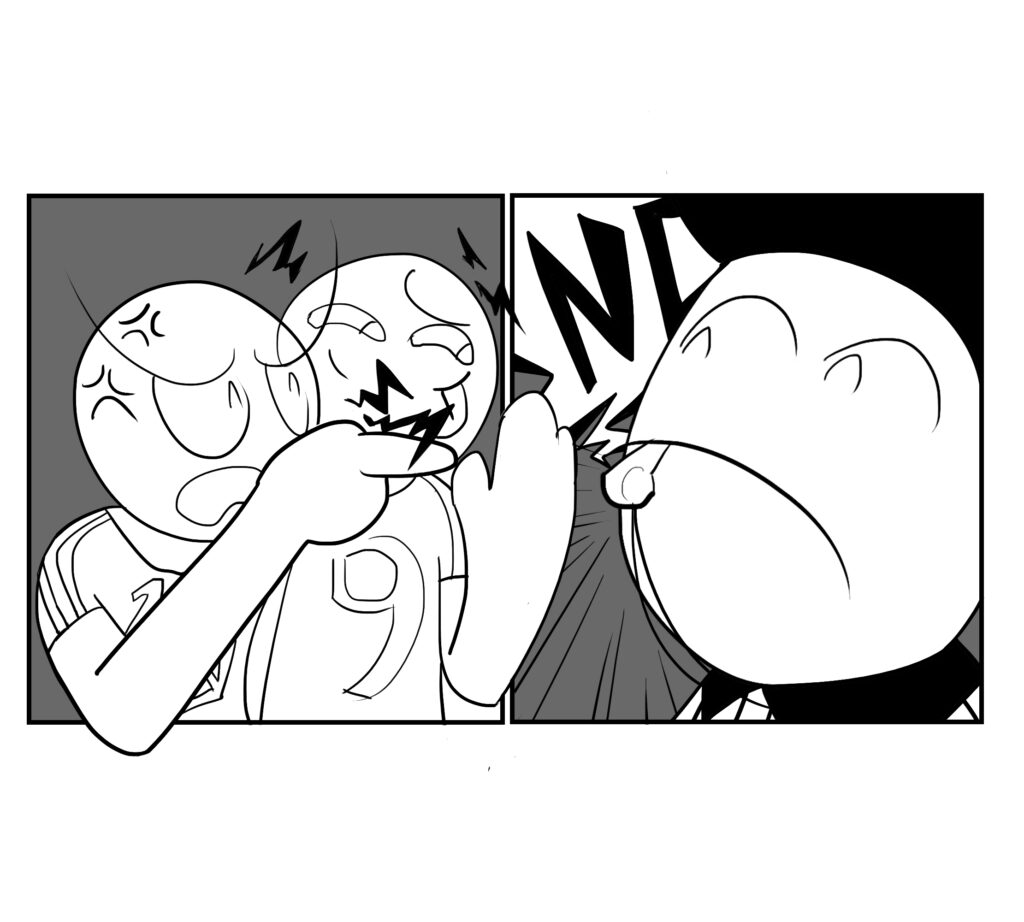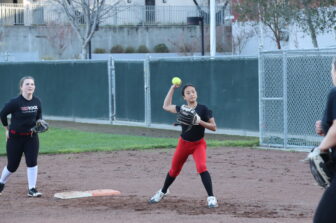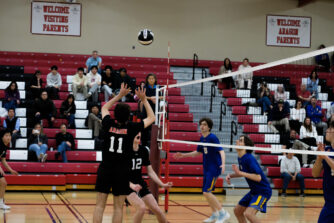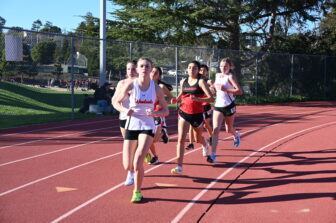
Credit: Yue Yu
In the beginning half of this year’s spring season, Aragon’s athletic program experienced two ejections, or penalties that prevent athletes from playing for the rest of the game or future games. Senior boys lacrosse player Dylan Daniel and sophomore JV baseball player Dalton Kane were ejected. A similar theme was present in both occurrences: a lack of respect for officiating and the shortage of officials.
Both Kane and Daniel spoke out against officials in inappropriate ways and were ejected after the game had ended: Daniel for mouthing off to an official during the game and Kane for mouthing off to an official after the game.
“I had just come in to pitch,” Kane said. “I was frustrated by a call and then I lost my cool [and] yelled at the umpire. I was in the wrong for doing so.”
Daniel similarly argued against a call.
“[I thought that it] ended our chance of coming back and winning the game,” Daniel said.
In Kane’s case, he was put into a tough spot after being asked to pitch for a tie with no outs or runners on in the bottom of the last inning. He did his job getting a ground ball to his second baseman for a routine play at the plate, but the throw didn’t have enough on it and the runner was called safe. Afterwards, he spoke in a disrespectful tone to the umpire, which resulted in his post-game ejection.
The ejections hurt the players, but more importantly, it hurt their teams. An ejection causes the player to miss up to three games, which is a potentially devastating consequence to a team’s season. For example, at the time of his ejection, Kane was leading the junior varsity baseball team with a .361 batting average. During his ejection, the Dons got swept in a two-game series against Burlingame, which effectively cut them out of the race for the league crown.
“Getting ejected was a very stupid thing to do,” Kane said. “It definitely hurt our team. It didn’t help that I couldn’t be there to support my team. I think three games was fair. It is obvious that [our actions were] wrong.”
Athletic director Steve Sell understood the weight of the ejections, which placed a damper on a stellar spring season for Aragon athletics.
“To have two ejections is just embarrassing,” Sell said. “We had gone the entire year with no ejections and then we had two in the course of one week.”
The ejections also took two points away from the Aragon athletics program’s commissioners cup tally. The Commissioners Cup is a competition among schools and “is awarded annually to the … school that best exemplifies the [PAL]’s commitment to sportsmanship and excellence in athletics,” according to the San Mateo County Office of Education website. While Aragon has yet to win, it was in contention for it this year. The two ejections knocked the Dons out of contention, while giving the athletic program as a whole a bad look.
“It makes us look like people who have a lack of respect and don’t honor the game,” Sell said.
Another problem is the shortage of officials for high school sports. Sports schedules have been impacted all year by the referee shortage. Starting in the fall season, football games were moved from Friday to Thursday to account for the lack of referees. Such behaviors displayed in the two ejections may contribute to these shortages, as they discourage referees from coming back.
“[The new referees] are thrown into a varsity contest and they aren’t ready,” Sell said. “They make mistakes, and they get screamed at and they just realize that it isn’t worth their time. You get these young officials who do a couple games and don’t come back. They don’t make it through that ‘growth phase.’”
This shortage may make overworked referees more sensitive to disrespect.
“We can’t control what the referees do, we can only control how we react,” Daniel said. “I think that the shortage of referees affects the amount of effort that the referees put in to show up. If the guy is driving an hour to ref our game, he might want to be respected more.”
Referees deserve respect, both for the game and their officiating, and ejections occur when that boundary is crossed. Since these ejections are painful and damaging to athletic programs, the teams look to avoid these penalties in the future.



